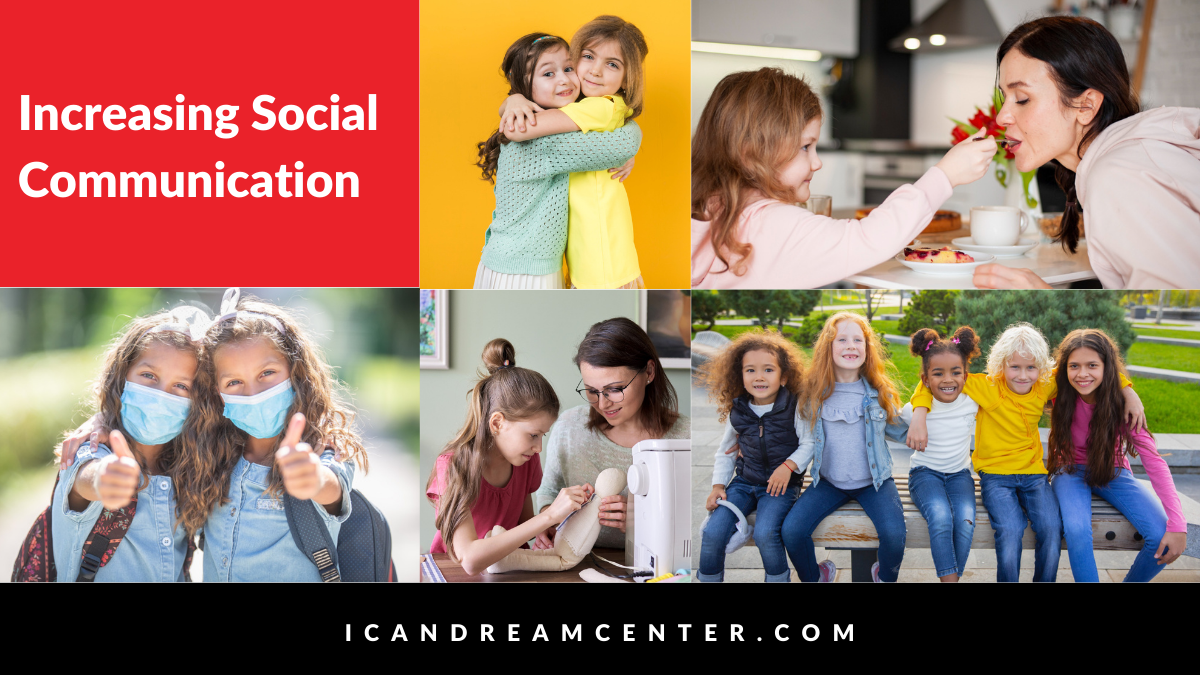
Increasing Social Communication
Social communication is essential for everyday life to build social relationships and express unmet needs. For youth having difficulties with self-expression, it can be emotionally overwhelming, leading to frustrations, socially inappropriate behavior, and refusing or ignoring requests.
Try Social Stories
In Ghurair and Alnaqi (2020) research, they utilized a technique called Social Stories that uses a sequence of images with words representing the steps of daily habits and the script for expected behavior for the child. Ghurair and Alnaqi (2020) research shows that social stories are effective for language stimulation and can help improve children’s perception of social expectations.
The students in the Little Dreamers Early Childhood Education program participate in a Social Work Group during circle time. As a social work intern, I’ve had the opportunity to read and sit in on storytime that exhibits social learning for the students. One book we’ve read taught them the importance of sharing and emotionally expressing themselves to friends when sharing. After reading the book, the students participated in an activity that required sharing and politely asking for their turn. Another book we’ve read allowed the students to recognize what they like about themselves and embrace their differences without fitting into social norms. Understanding diversity is important when building a social relationship to respect and value differences in individuals.
Music
The Little Dreamers enjoy music time. Music provides an opportunity to dance with friends, and when listening to songs like “Dance, Freeze,” the students practice following directions. Sharda et al (2018) emphasize the positive impact music has on social functioning and brain connectivity for youth with autism spectrum disorder. Additionally, Sharda et al (2018) explains that various music activities, such as musical instruments, can allow children to practice taking turns, improve emotional engagement and self-expression, decrease behavioral problems, and increase social communication.
References:
Ghurair, N; Alnaqi, G. (2020) Schemes of eStories for Children with Social Communication Difficulties. Advances in Human – Computer Interaction
Sharda, M; Tuerk, C; Chowdhury, R; Jamey, K; Foster, N; et al. (2018) Music improves social communication and auditory–motor connectivity in children with autism. Translational Psychiatry (8)
